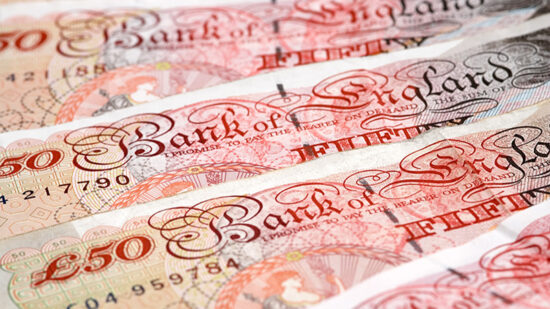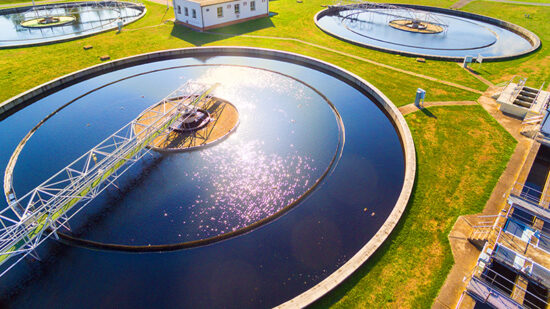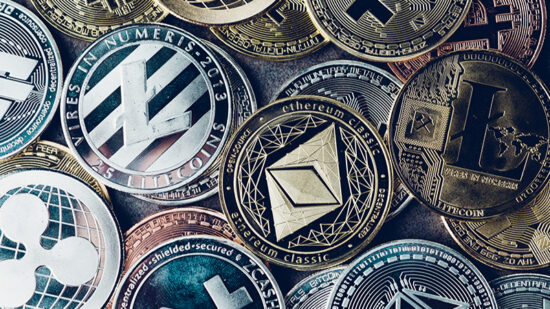If you don’t immediately know the answers to these questions [for the answers, see below], you will soon.
Because Brazil, which has been in the headlines for more than a decade on the strength of its having been named one of four up-and-coming “BRIC” countries by Goldman Sachs chairman Jim O’Neill in 2001, is guaranteed to be even more in the full glare of the world’s media spotlight over the next few years.
Most obviously, of course, this will be in part because it is due to host the FIFA World Cup next year. Twelve Brazilian cities – few of which many outside Brazil have ever heard of – are in the process of getting ready, with six at varying stages of building brand-new football stadiums. As they do, long-time Brazil-watchers are observing the preparations with mounting scepticism that the new stadia will be ready in time, or that the country’s notoriously limited inter-city transport infrastructure will cope.
For Rio de Janeiro, though, the World Cup will be but a practice exercise for the main event, which, for it alone, will be the Olympic Games in August 2016, and for which it must supply 30 sporting venues, including facilities for such sports as rowing, golf and canoeing.
As with the World Cup, some observers have questioned whether Rio, with its vast favelas of low-income residents, is ready for an event of this scale. Others, including former Brazilian president Luiz Inácio Lula da Silva, have pointed to the city’s incident-free hosting of the 2007 Pan American games as evidence that it’s more than up to the challenge.
Financial services implications
From the perspective of the world’s financial services industry, the two sporting events by themselves have created myriad obvious investment opportunities that such large-scale phenomena almost always provide: a large-scale need to build roads and other transport infrastructure, sports facilities, and hotels and accommodation for athletes, tourists and the media, with a tight and inflexible deadline.
Assuming the games go well and the press coverage is largely favourable, some say, going forward there is likely to be greater retail investor appetite for Brazilian assets once the 2016 Olympic flame is extinguished.
Tempering that, though, are certain fundamentals about Brazil and its economy that the two pending sporting events will not change.
Julien Seetharamdoo, senior macro and investment strategist for HSBC Global Asset Management, sees basically two macro Brazil stories going on. The first, he says, is a “long-term growth story” which is “very positive for Brazil, as it is for a lot of the emerging markets”, as its large population increasingly becomes middle class and “catches up” with more developed countries. The second is a more mixed, shorter-term, cyclical outlook story, the stage for which was set in 2012, when the economy is thought to have grown by no more than 1%.
In addition to the catch-up growth, Brazil stands to benefit from its growing ties with its large BRIC sibling, China – (the economy of which, as Goldman Sachs’s O’Neill has said he repeatedly keeps having to point out, is the same size as those of Brazil, Russia and India put together) – is another positive, Seetharamdoo notes.
China is now Brazil’s largest trading partner, and a top destination for its commodity exports, including iron ore, other metals and oil.
Among the reasons Seetharamdoo and others say Brazil’s shorter-term outlook is less clear are such persistent problems as the strength of the Brazilian currency (though it has come down somewhat recently); its still-high (but also lowering) interest rates; its high levels of inflation; and its notoriously high costs of doing business.
“Brazil has been through quite a sharp slow-down in the past year or two, and although we think it’s going to recover next year, growth is still probably going to be weaker than it’s been in the recent historic past,” Seetharamdoo says. (As recently as 2010, Brazil’s economy grew by 7.5%.)
“So even if the economy recovers, it probably won’t be as strong growth rates as we’ve seen in previous years.”
On the positive side, Brazil’s consumers are notoriously willing to spend, which is why, according to Seetharamdoo, HSBC AM is currently overweight in its discretionary consumer sector, and is only less keen on consumer staples because it feels that valuations at the moment, reflecting widespread market optimism, “are a bit stretched”.
“We are also overweighting industrials, because of the sharp depreciation in the currency, which is improving Brazil’s competitiveness, and also because of the domestic need for infrastructure investment ahead of the World Cup and the Olympics,” Seetharamdoo continues.
“We also see growth in healthcare, as people whose disposable incomes are growing tend to increase their spending on health.”
‘Custo do Brasil’
John W Fleming, the founder and principal of Rio de Janeiro-based advisory firm Global Index International, says one of Brazil’s biggest challenges is a peculiarly Brazilian phenomenon known to locals – and increasingly, to expatriates – by its Portuguese-language term, “custo do Brasil”, or “Brazil cost”. It is a combination of infrastructure problems, high taxes and bureaucracy that raises the price of Brazilian goods and services significantly, relative to other countries.
“Everything is more expensive in Brazil, sometimes seven, eight, nine times the price they would be if you were buying them in England,” Fleming says.
Used cars can be even more expensive, Fleming adds: someone he knows recently sold one for around 14 times what it would go for in Britain.
What this means for businesses is that staying in business is hard, and starting a new one, particularly if one is coming from outside Brazil, nearly impossible, he adds.
“There’s no way we could afford to set up in Brazil now, if we weren’t here already,” he says. For in addition to high prices, “labour is terrifyingly expensive, taxes are high and complicated, and it is simply a very tough and closed environment in which to make anything happen.”
Raphaël Mazet, country manager for Brazil at Speyside Corporate Relations, which specialises in helping multinationals get settled and sorted in new markets, particularly Latin America, looks at the challenge in a more upbeat way.
‘Dedication at first’
The main thing, he says, is that “you need a lot of dedication to come into Brazil in a meaningful way” at first. And anyone who thinks it will be as easy to open a rep office in Brazil as it would be for, say, a French company to open a rep office in the UK – which “you might do in a couple of weeks, by sending someone on the Eurostar with a work visa” – will be in for a surprise.
“To get set up in Brazil, you need to set up structures, send people, recruit people, and you need to fill out all these forms, papers and so on,” he explains.
“Once you are in, you are considered a local company in many respects, and you can start really reaping the rewards of being there. But it does take a lot of dedication and commitment in the beginning.”
Barriers to entry
Paul Scott, founder and managing director of Swim Worldwide Investment Management (SWIM), an advisory firm which caters to both expatriates and locals out of four Brazilian cities as well as elsewhere in South America, says he also believes that the combination of the custo do Brasil and the barriers to entry Mazet describes are why a number of advisory firms and life companies have come into the market and left soon afterwards, while others have failed to expand, or simply stayed away in spite of the market’s many attractions.
“Of course I can’t speak for them [those companies that have left Brazil after a short time], but I suspect one of the main reasons is the cost of doing business here,” Scott says.
“Brazil is a very expensive place to be right now, and here, as anywhere, it takes a while for a business to become established, before it starts to actually bring in enough revenue to basically justify the cost.
“I think many people look at their start-up businesses there and think, ‘Well hang on a minute, we’re just burning money here, when we’ve got established regions elsewhere – this is just too expensive.’”
Taming the ‘Custo’
To be sure, the government, under president Dilma Vama Rousseff, has attempted to reduce the custo do Brasil, as part of its general efforts to revive the flagging Brazilian economy through a number of measures, with varying degrees of success.
They have included cutting interest rates (by around 5% in 2012 to 7.25%, which is still high by standards in most developed countries); cutting taxes on cars and home appliances to stimulate sales, as well as trimming some payroll taxes, to ease the burden on employers; and reducing the prices electric utilities are permitted to charge.
In August she unveiled a scheme to provide $66bn for new roads and railways, with financing to be provided by the country’s state development bank.
Perhaps of greatest interest to non-Brazilian fund managers, though, would be an easing of restrictions on the ownership of foreign assets by Brazilians: Those with a net worth of more than $1m may now invest 100% of their portfolios in foreign equities, while those with less to play with have a cap of 20%.
While the appetite for equities is said to be low – not surprising in a country that even now has had among the highest interest rates on bank deposits in the world – some have seen this as a possible beginning of a change in the way wealthy Brazilians invest.
Key to future: ‘innovation’
One thing that all emerging economies have in common, experts say, is that growth based on “catching up” with developed economies is inevitably finite. This means that in order to avoid economic stagnation once everyone in the country who wants a car, a television set and a mobile phone has one, emerging market economies need to create “the foundations for innovation”, according to Ataman Ozyildirim, director of business cycles and growth research at the New York-based Conference Board think tank.
“For emerging economies like Brazil, this is the biggest challenge,” he adds.
“Whether it’s developing new products, new goods and services, or new ways of doing business, sooner or later innovation has to begin to take place, as economies mature, and the ‘catching up phase’ begins to tail off."
Optimism
For now, though, both SWIM’s Scott and Global Index’s Fleming are in no doubt that Brazil, in spite of its challenges and idiosyncrasies, is where they intend to stay.
“The truth is, there is so much good business here, and so many good clients to talk to, and it’s such a big country with a lot of very big cities,” Scott says. “All it needs is some infrastructure investment, and a little more time to come good.”
Adds Fleming: “For now at least in Brazil generally – and especially for our clients in particular – things are going well. There’s full employment, and a real sense of anticipation in the air about the forthcoming World Cup and Olympics.
"If you are lucky enough to be among those who have money in Brazil, it’s a great place to be – especially if you happen to like watching football, volleyball or ping-pong.”
____________________________________________________
Answer to the questions:
1. The Brazilian flag features a blue circle containing some 27 stars – said to represent the sky over Rio on a particular morning in 1889 – spanned by a band inscribed with the Brazilian national motto, and sitting inside a yellow rhombus on a green background
2. Ronaldo “Ronaldinho” de Assis Moreira is a top Brazilian football player
3. It is spelled São Paulo
|
Key facts box Brazil |
|
|
Size |
8.5m km2 /3.3m sq mi (slightly smaller than the US) |
|
Population |
199.3 million (5th largest) |
|
Official language |
Portuguese |
|
GDP 2012 |
$2.282 trn (7th largest) |
|
Growth 2012; 2013(e) |
Circa 1%; circa 3% |
|
GDP per capita |
$11,769 |
|
Unemployment rate (end Nov 2012) |
4.9% |
|
World Bank 2012 (1 = easiest, 185 most difficult) |
130 (2011: 128) |
|
Transparency Int’l ranking |
=69 |
Sources: CIA World Factbook; World Bank; Transparency Int’l; IMF; GDP data based on purchasing power parity (PPP) valuation in current international dollars








